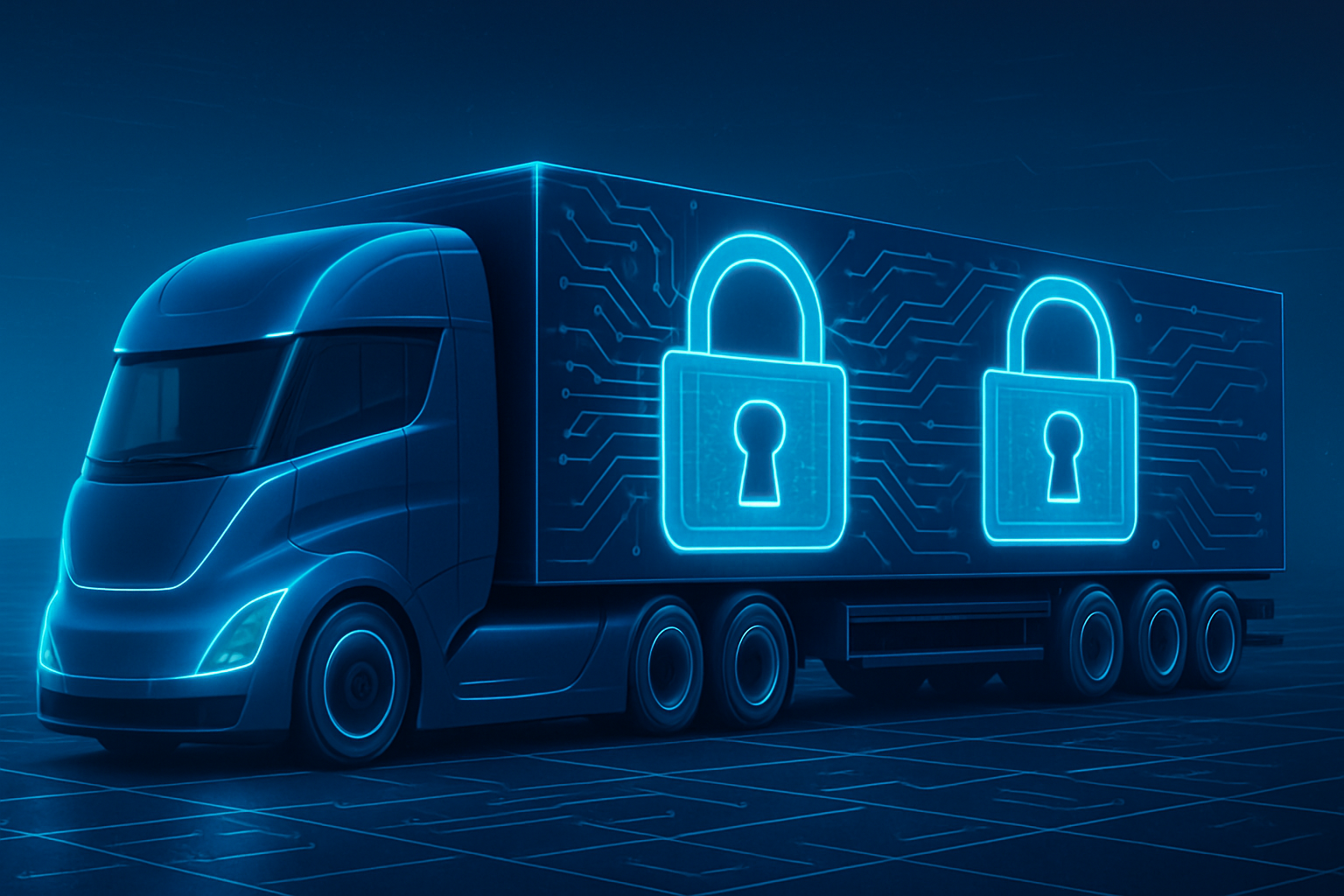The race to dominate autonomous vehicle technology has intensified globally, casting a spotlight on the competitive and high-stakes world of self-driving trucks. Central to this landscape is a controversial startup that recently faced accusations of transferring sensitive trade secrets tied to cutting-edge autonomous driving technologies to Chinese firms. This incident has stirred deep concerns about intellectual property security, geopolitical tensions, and the impact on innovation within the United States. In a sector populated by industry giants such as Waymo, Tesla, Aurora, and emerging players like TuSimple, Embark, and Kodiak Robotics, the alleged misconduct underscores a broader challenge in safeguarding proprietary advancements. These developments not only threaten the competitive edge of American companies but also raise questions about national security and the ethical boundaries in technology transfer.
Throughout 2024 and into 2025, this startup’s actions have drawn governmental scrutiny, prompting increased regulatory and legal interventions. Despite making public commitments to cease sharing sensitive data with Chinese partners, evidence surfaced indicating that proprietary self-driving truck technology—especially innovations connected to Navistar collaborations—continued to be disseminated overseas. The scenario mirrors prior cases involving major tech firms where former employees or executives were charged with stealing trade secrets, including notable instances linked to Apple’s self-driving car projects and Tesla’s autonomous driving systems.
Against this backdrop, the story encapsulates the intricate interplay between innovation, intellectual property protection, and geopolitical strategy that shapes the autonomous vehicle industry today. It shines a light on the challenges companies face in balancing international partnerships with the imperative to secure technological assets. As competition heats up with entities like Zoox, Nuro, Einride, and Locomation pushing boundaries in automation, the integrity of trade secrets remains pivotal for sustaining leadership and trust in this transformative sector.

How the Self-Driving Truck Startup’s Trade Secret Theft Shook the Autonomous Vehicle Industry
In the competitive landscape of autonomous trucks, safeguarding proprietary technology is crucial. The startup in question, deeply embedded in developing state-of-the-art self-driving systems, became embroiled in allegations that it siphoned trade secrets to Chinese firms, despite assurances to cease such activities. This breach not only jeopardizes company integrity but also sends ripples through the entire autonomous vehicle sector.
The startup’s technology was previously incorporated into joint projects with major industry players like Navistar International. These partnerships typically involve sharing sensitive software algorithms, system designs, and data on vehicle behavior under variable conditions—information fundamental for advancing self-driving truck capabilities. Following the partnership, documents and technology that embodied years of research and investment reportedly ended up in unauthorized hands overseas.
The implications of such a leak are profound. Besides the direct loss to the startup’s competitive position, this situation encourages competitors abroad to accelerate their autonomous vehicle development by piggybacking on stolen innovations. This challenges firms like Waymo and Tesla, which rely heavily on proprietary AI models and sensory technology, to double down on intellectual property protection measures.
List: Key Aspects Impacted by Trade Secret Theft in Self-Driving Technology
- Research and Development: Compromised projects and wasted investments.
- Market Competition: Unfair advantage to unauthorized parties.
- Investor Trust: Diminished confidence impacting funding and partnerships.
- Regulatory Scrutiny: Heightened examination by government agencies.
- National Security Concerns: Advanced technologies aiding foreign competitors.
This breach also exerts pressure on regulatory agencies to strengthen oversight of international collaborations within the autonomous technology sphere. The U.S. Department of Justice and several agencies have magnified their investigative efforts, examining former employees’ activities, especially those transitioning to Chinese firms. This environment stokes fears that without rigorous internal controls and vigilant corporate governance, trade secret theft in this penultimate tech realm could become increasingly prevalent.
| Stakeholder | Impact from Trade Secret Theft | Action Response |
|---|---|---|
| Startup | Legal action, loss of IP, reputational damage | Cease Chinese collaboration; reinforce IP protocols |
| U.S. Government | National security risks, economic impact | Stringent controls; legal warfare against offenders |
| Industry Leaders (Waymo, Tesla) | Competitive pressure; need to upgrade security | Enhance intellectual property security systems |
| International Competitors (Chinese firms) | Access to advanced tech; geopolitical leverage | Expand autonomous R&D leveraging stolen data |
Legal Battles and Enforcement Actions Surrounding Trade Secret Theft in Autonomous Trucking
The unfolding legal saga following allegations against this self-driving truck startup has illustrated the complexities of enforcing intellectual property rights in the global autonomous vehicle market. Federal prosecutors have charged several former employees linked to the startup with multiple counts of trade secret theft. Similar to high-profile cases involving firms like Apple and Tesla, these prosecutions underscore the delicate balance between fostering innovation and combating corporate espionage.
One of the critical areas of contention is how stolen information was allegedly transferred to Chinese entities despite clear contractual and regulatory prohibitions. The startup, like many autonomous vehicle companies, maintained collaborative ties with partners abroad, including Chinese firms eager to leapfrog technological milestones. These partnerships, often cloaked in confidentiality agreements, became conduits for unauthorized dissemination.
The government’s response has involved stringent enforcement strategies, including:
- Close monitoring of employees transitioning to competitors internationally.
- Strengthening export controls on sensitive technologies.
- Proactive collaboration between law enforcement and corporate legal teams.
- Utilizing advanced forensic methods to track unauthorized data transfers.
Despite these efforts, the situation highlights a persistent challenge: the speed and stealth of digital theft can outpace traditional legal frameworks. Society’s increasing reliance on autonomous vehicles by companies such as Aurora, Nuro, and Zoox also means stakes are higher than ever. The rapid advancement poses a race condition where technology development outstrips the law’s capacity to keep up effectively.
| Legal Intervention | Description | Effectiveness |
|---|---|---|
| Employee Indictments | Pursuing individuals responsible for theft | Moderate deterrence; legal precedent reinforced |
| Export Regulation Enhancements | Controlling technology outflow from the U.S. | Improved but limited by global digital networks |
| Corporate Compliance Programs | Internal policies to prevent leaks | Critical but requires constant updating |
| International Cooperation | Cross-border law enforcement coordination | Challenging but increasingly prioritized |
Industry Impacts and Innovation Challenges for U.S. Autonomous Truck Startups
The theft of trade secrets in the self-driving truck sector is reshaping how American startups approach innovation and international partnerships. Trust, once foundational to fruitful collaborations with foreign entities, especially in China, is now fraught with suspicion and caution. This mistrust manifests as startups tighten security protocols and reevaluate engagement strategies with international markets.
In addition, startups such as Embark and Kodiak Robotics have voiced concerns over intellectual property vulnerabilities and potential risks to their cutting-edge sensor fusion algorithms, machine learning models, and operational frameworks. The incident drives home the reality that in the autonomous trucking ecosystem, innovation is tightly coupled with security.
Key challenges faced by startups in this environment include:
- Balancing open innovation with protection of intellectual property.
- Adhering to evolving government regulations and export controls.
- Securing funding amidst uncertainty about data security and leaks.
- Maintaining competitive edge while fostering cross-border collaboration.
Furthermore, technology advances by leaders like Nuro and Locomation have intensified market disruption, pushing startups to accelerate development timelines without compromising security. These pressures have spurred efforts in advanced cybersecurity measures, internal employee training, and contractual safeguards.
| Startup | Primary Challenge | Strategic Response |
|---|---|---|
| Embark | Data and technology leakage | Implement robust access controls; increase audits |
| Kodiak Robotics | Protection of proprietary AI models | Invest in encryption and IP management systems |
| TuSimple | Preserving investor confidence | Legal commitments and transparent reporting |
| Locomation | Balancing innovation with regulation | Active policy engagement and compliance |
Global Geopolitical Ramifications of Trade Secret Theft in Autonomous Driving Technologies
The accusations against the self-driving truck startup unveil broader geopolitical undertones affecting technology leadership worldwide. Technology transfer via illicit means disrupts the tech balance and generates concerns regarding national and international security. China’s rise as a formidable player in autonomous vehicles is partially fueled by acquiring innovations from overseas sources, undermining Western efforts to maintain dominance.
This phenomenon complicates relationships between the U.S. and China, particularly in high-tech industries integral to economic and strategic power. It challenges policymakers to craft nuanced responses balancing technological openness with safeguarding critical assets. Increased scrutiny of startups and established firms alike underlines the tension between fostering innovation and protecting intellectual property.
Notably, the alliance of startups like Zoox and tech giants such as Tesla in advocating for stricter controls exemplifies the industry’s call for a coordinated front against illicit trade secret activities. Governments globally are urged to harmonize export laws, enhance cooperation, and invest in deterrence mechanisms.
- Escalated regulatory frameworks targeting technology transfer
- Heightened intelligence sharing between allied nations
- Economic sanctions against offending entities or individuals
- Promotion of secure domestic innovation ecosystems
- Public-private partnerships emphasizing cybersecurity resilience
| Geopolitical Factor | Effect on Autonomous Vehicle Industry | Policy Response |
|---|---|---|
| U.S.-China Tech Rivalry | Increased IP theft risk; fractured collaborations | Boost export controls; trade negotiations |
| Global Supply Chain Dependencies | Vulnerabilities in component sourcing | Encourage domestic manufacturing |
| International Legal Cooperation | Improved cross-border enforcement | Joint task forces; treaties |
Protective Measures and Future Directions for Autonomous Vehicle Startups Amid Trade Secret Risks
In response to the ongoing threat of trade secret theft, self-driving truck startups are instituting comprehensive protective strategies. Their goal is to safeguard innovation while remaining competitive and open to strategic partnerships. These measures include deploying state-of-the-art cybersecurity tools, rigorous employee vetting, and transparent governance policies.
Startups now prioritize layered defenses, combining technological, procedural, and legal solutions. These incorporate:
- Encryption of data at rest and in transit to prevent unauthorized access
- Role-based access controls to limit sensitive information dissemination
- Regular security audits and penetration testing
- Mandatory employee training focused on intellectual property laws and data security
- Establishing legal frameworks that deter and penalize trade secret violations effectively
This evolving landscape also encourages collaboration with government and industry groups to forge best practices and share threat intelligence. The involvement of prominent entities such as Waymo, Aurora, and Zoox in advocating for industry-wide standards highlights the collective commitment to secure the future of autonomous trucking technology.
| Protection Strategy | Description | Startup Adoption Level |
|---|---|---|
| Data Encryption | Securing all digital assets with advanced cryptography | Widely adopted |
| Access Control Systems | Granular permissions based on roles and responsibilities | Implemented by most startups |
| Security Audits | Periodic assessments to identify and patch vulnerabilities | Increasingly prevalent |
| Employee Training | Educating staff about IP laws and internal policies | Mandatory in leading firms |
| Legal Deterrents | Contracts and penalties to discourage theft | Growing focus |

These trends suggest a future where technology transfer occurs under more secure and transparent conditions, allowing startups to innovate confidently while mitigating risks. The delicate balance between openness and protection will remain a defining challenge in the autonomous vehicle industry’s evolution as it shapes the coming decades.
Frequently Asked Questions about Trade Secret Theft in Autonomous Vehicle Startups
- What are the common risks of trade secret theft in autonomous vehicle companies?
Trade secret theft risks include loss of competitive advantage, financial damage, and potential security concerns due to unauthorized technology transfer. - How do startups protect their intellectual property from being stolen?
Startups use encryption, access controls, regular audits, employee training, and enforceable legal agreements to safeguard their IP. - Why is the U.S. government concerned about trade secret theft related to China?
The government fears that stolen technologies could enhance foreign competitors’ capabilities, impacting national security and U.S. technological leadership. - What role do employees play in trade secret theft incidents?
Employees with access to sensitive information are often involved, whether intentionally or inadvertently, in leaking proprietary data, making internal controls essential. - Can trade secret theft slow down innovation in the autonomous vehicle sector?
Yes, theft creates mistrust and forces companies to divert resources toward protection rather than innovation, potentially slowing progress.


